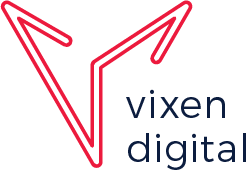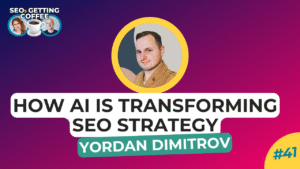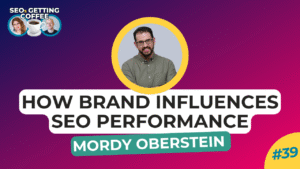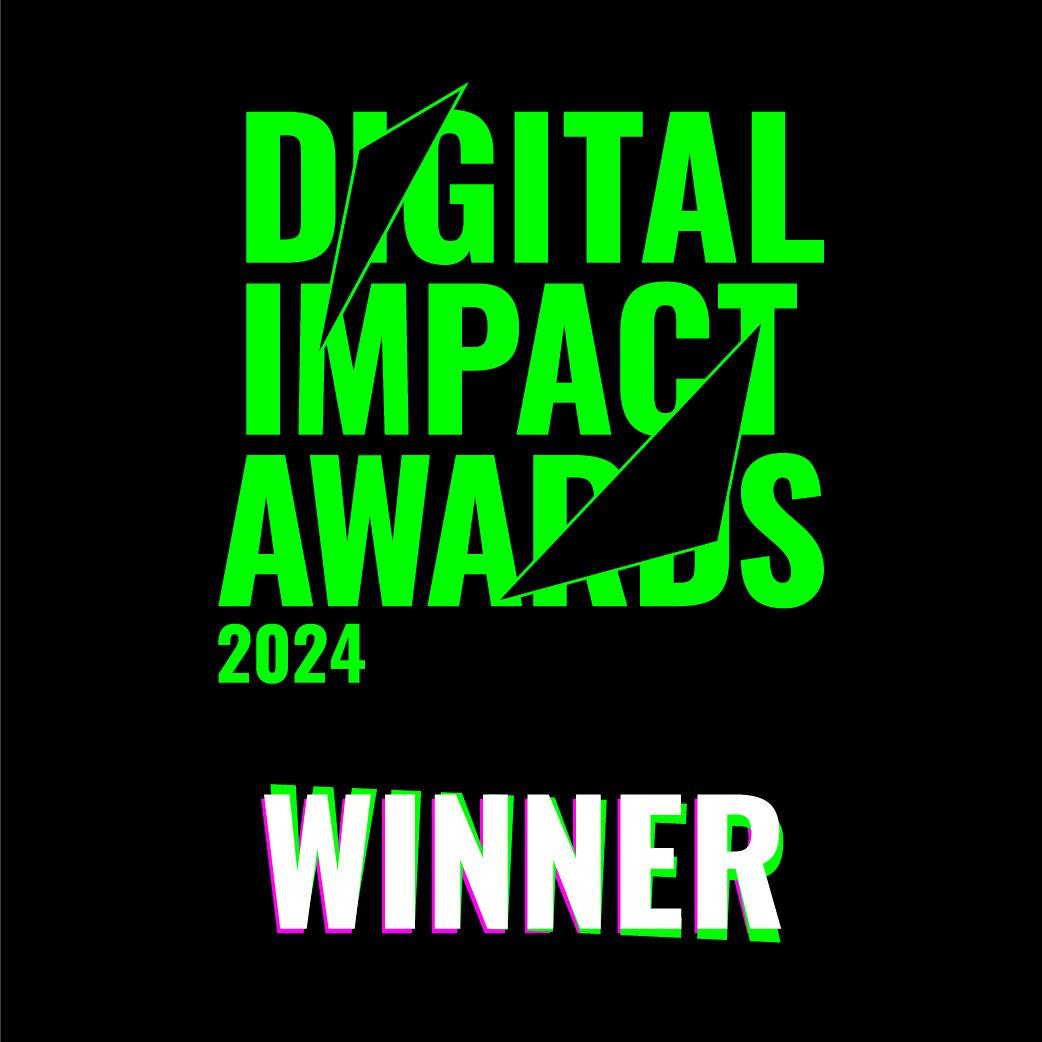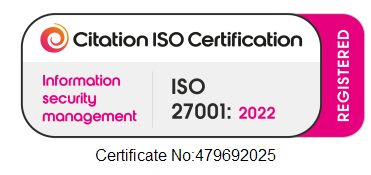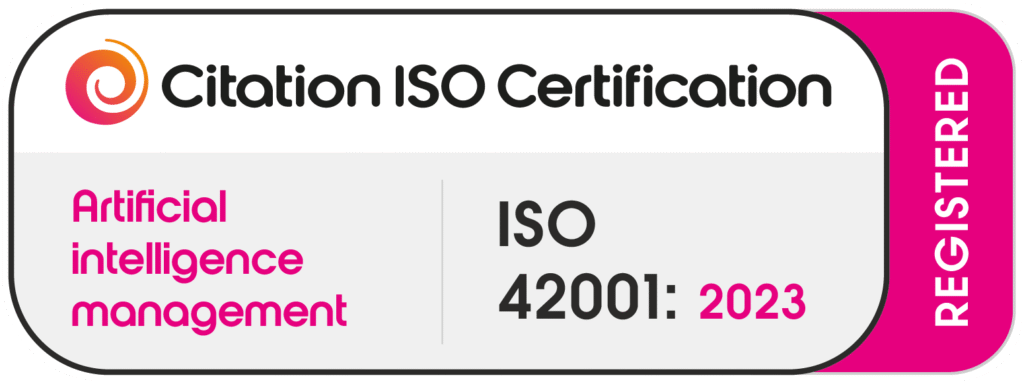Some may perceive artificial intelligence as a groundbreaking and relatively recent discovery. The truth is that AI applications have been around for quite some time. AI tools have just been improved and refined, and the launch of products like ChatGPT has brought the entire AI domain into the spotlight like never before.
In this blog, we will explore the impact of AI and its benefits for organisations, focusing on AI applications in digital marketing and looking at some examples of how our team uses AI tools in their daily routine.
Make sure to stick around till the end because we will reveal our wildest dreams for the perfect AI tools that could make our workplace even more enchanting.
Let us start with a concise explanation of what artificial intelligence (AI) entails.
What is AI?
For many people, ChatGPT is synonymous with AI, but it’s just a small part of the wider AI universe. Artificial intelligence encompasses the development of computer systems capable of performing tasks that require human intelligence. AI systems are designed to simulate human cognitive functions and improve their performance over time.
Although the field of AI is constantly evolving, we can identify three types of AI:
- Narrow AI (ANI), also known as Weak AI, is the only existing type of AI at present days. It is designed for specific tasks like voice assistants, image recognition software, and recommendation systems.
- Artificial General Intelligence (AGI), or Strong AI: it is still only theoretical and many experts believe we are far from achieving it. Strong AI would perform any intellectual task that a human being could. It would possess problem-solving skills, reasoning and creativity capabilities.
- Super AI or Artificial Super Intelligence (ASI): when an AI model exceeds human capabilities going beyond the replications of tasks and emotions. The concept of Super AI is purely theoretical.

Source: DataSci101
In simple words, every kind of AI we use and talk about today falls into the first type: Narrow AI.
Now that we have explained (even if simplified) what AI is, we can delve into one of the most impactful applications of AI in today’s world, which are also increasingly used in digital marketing: we are talking about Large Language Models or LLMs.
‘Large’ refers to the massive datasets used for training language models and to the model size itself… More extensive datasets and models enable better performance.
The ‘Language‘ aspect focuses on the model’s ability to identify and mimic the statistical structure of language, but without truly understanding it.
‘Model’ denotes the virtual learning environment where LLMs learn linguistic patterns without being explicitly programmed, similar to how scientific models simplify and explain phenomena. Think of it like a very complex pattern recogniser.
After understanding LLMs, we can talk about the key technologies that power them:
- Natural Language Processing (NLP) is a technology that combines linguistics, computer science, and machine learning to help computers understand and interpret human language. Some examples of NLP are speech recognition (like subtitles added to videos, machine translation, and text generation.
- Generative artificial intelligence can generate new content, such as text, images, or music, based on the patterns and information it was trained on. So it’s not just about analysing data but creating something new thanks to complex algorithms that understand the underlying structure and elements of the data it has collected and ‘studied’.
- Transformer: A transformer is a type of neural network architecture that has revolutionised the field of natural language processing with its efficiency in handling long sequences of data. Transformers excel at understanding the context and relationships within text, not just individual words, which makes them particularly effective for complex language tasks, like computer vision and speech recognition.
And if you are wondering where we got this amazing and, for once, rather clear info, check out this brilliant intro on AI.
Artificial intelligence applications and its benefits for organisations
By understanding the advanced capabilities of Large Language Models, it’s clear to see how these technologies pave the way for transformative applications in organisations in any industry. Utilising these new tools can undoubtedly bring benefits for companies. Here are a few:
- Improved efficiency and automation. One above all is the automation of repetitive and manual tasks, which take away precious time and resources from more crucial activities. Such automation not only boosts employee motivation, as they can avoid tedious tasks, but also contributes to financial optimisation. A well-known example of improved efficiency are chatbots and virtual assistants. How often have you clicked on the “contact” or “chat now” button on a website only to be redirected to a chatbot? Yes, we get it, it can be frustrating at times, from a user’s perspective, but from a company point of view, this saves a lot of time and resources. This translates to significant time and resource savings as it helps filter the messages and reduce the number of enquiries through the customer support department. Chatbots are widely used in the customer service sector across various industries. AI-driven chatbots leverage natural language processing and machine learning to engage with customers instantly. As frustrating as this can be sometimes, the recent developments promise a new generation of chatbots that will be more efficient than ever.
- Enhanced data analysis and decision-making
AI tools and software can analyse and process large amounts of data quicker than humans can. They can provide predictive analytics, risk assessment, and scenario analysis, which can assist and accelerate the decision-making process and accelerate making.
This is particularly useful for sales forecasting, where AI tools can analyse historical sales data and market trends to predict future sales and for businesses in managing inventory, production, and staffing.
- Facilitated skill development. In the fast-paced work world, acquiring new skills and adapting to new roles can be time-consuming and challenging. AI tools such as ChatGPT or Bard can assist in overcoming technical hurdles and problems, allowing individuals to tackle tasks beyond their current expertise. Such as working with HTML or CSS for those who have limited knowledge in the field or even working out a function in a spreadsheet! All these aspects are crucial for companies to stay competitive in today’s fast-paced world. Organisations that connect with academic research centres can benefit enormously from access to cutting-edge innovations and insights. On the other hand, forming such connections allows researchers and scientists to implement AI systems and software that solve real-world problems.
Looking to get involved in the AI field in Brighton?
Vixen Digital is proud to sponsor Sussex AI, an interdisciplinary AI research centre at the University of Sussex. Sussex AI unites world-leading experts across disciplines to advance artificial intelligence methods and applications, from machine learning to computer vision.
Come and join us!
Application of artificial intelligence in digital marketing
These were just some examples of how AI technology can help businesses and organisations in every industry. But we are a digital marketing agency, after all. So let’s take a closer look at how AI impacts digital marketing, our work at Vixen Digital, and some practical examples.
Since the launch of ChatGPT, everyone is running a race to build and offer their own AI tool! Like Buffer with its AI writing assistant or Canva with its built-in AI image generator (which, in my opinion, is not great compared to DALLE or even better Midjourney). From content creation to data analysis, its applications seem endless:
- Personalisation and Ad Targeting: nowadays, marketers are able to create highly personalised content, ads and experiences for users thanks to machine learning algorithms that analyse user behaviour and preferences to deliver targeted recommendations, ads and product suggestions, which results in higher conversions. This is the case of Meta, which comes with AI built-in features, as recently explored by our Paid Social Specialist Sophie, in her last blog, Top 5 Meta Advertising Tools to Use in 2024. The relatively new Advantage+ Shopping Campaigns, ideal for e-commerce, uses automation and machine learning (AI) to reach the right people more quickly and efficiently and promote the best-performing creatives. Advantage+ Audience is another new feature that helps you find your campaign audience by using a lot of information, like past conversations or Pixel data, and it has a lower CPC.
- Predictive Analytics: as mentioned AI-driven predictive analytics allows marketers to forecast future trends and predict which marketing strategies are likely to be most effective. An example of a tool that we deploy is Google Analytics.
- Content Creation and Optimisation: Natural Language Processing (NLP) can help generate and optimise content. Everyone around here is jumping on the ChatGPT bandwagon, some more enthusiastically than others. ChatGPT is our best friend when it comes to content and ideas generation. Tools like ChatGPT, Bard (though some of us believe that it’s not that great), or Claude.ai are brilliant for brainstorming, planning content structure, generating title ideas and even smoothing out the overall flow of content—especially for those of us who, like me, aren’t native English speakers. Of course, a good proofreader’s eagle eyes are always the best choice! Our Digital Marketing Executive recently leveraged ChatGPT to translate keywords from English to Czech for keyword research for one of our clients – a huge time saver even compared to Google Translate. While our Head of Digital Marketing often uses ChatGPT to generate code fragments and even had the AI tool DALL-E create a futuristic image for her blog “Emina vs. Machine: The Impact of AI on SEO.” Our Director, Sean Carrol, has been searching for the best AI video assistant. Riverside.fm has been of great in helping us speed up the production and distribution of our latest episode of SEO’s Getting Coffee: Is TikTok a Search Engine? Thanks to an AI built-in feature, Riverside allows you to create video clips in minutes, reducing the elaborate and time-consuming editing task. It also automatically pinpoints and creates video chapters. For all content creators and social media specialists, this is music for your ears!
- Email Marketing Automation: AI automates and optimises email marketing campaigns. It can personalise email content based on user behaviour or determine the best times for sending emails.
- Social Media Management: AI has a huge impact on social media management as it can analyse social media trends and user engagement so that you can see what content resonates better with the audience which day and time post. Tools like SproutSocial or Hootsuite, just to name a few, can run a sentiment analysis: this involves analysing text from reviews, social media, and other sources to gain insights into public opinion, sentiment, and emotional nuances. Businesses often use this to understand customer satisfaction, public reaction to new products and market trends.
Our Dream AI Tools for Work Enhancement
These are just a few examples of what AI already does for our team and could do for yours. But what if we asked you to design a personalised AI assistant tailored to your needs and preferences? What would you have your dream AI tool do for you at work? We asked our Vixen staff, and here are the results!
A system that listens to emails, conversations and Slack all day and updates and prioritises my action list in real time.
How cool would that be? Imagine the efficiency of having a personal assistant seamlessly managing your tasks as conversations unfold.
A system that scans my messages, conversations and data that I report on (e.g. from paid ads accounts) and helps to automate emails to clients asking about their accounts.
The AI tool of my dreams would automatically analyse and crosscheck all roadmaps and social media calendars and proactively chase down clients for any missing deliveries.
If you work in an agency, you know what it’s like! The struggle is real! Sometimes, getting the content and information across is the most difficult part of the job! Wouldn’t it be amazing if there was a tool that could do that automatically? Reduce the time we spend on writing emails, tracking content deliveries and streamlining communication with clients!
A way to accurately report on conversions across multiple channels, including dark social and offline. And without privacy issues!
One click content plan and content creation based upon topic or keyword
A system that scans your GA accounts writes monthly reports, and recommends changes that actually work, not just a Google rep!
Sally Man – Paid Media Manager
Here are our techy savvies! From detailed insights on conversions without compromising privacy to a Google Analytics AI powerhouse that truly understands your unique needs, transforming data into actionable strategies.
Closing thoughts
As you can see, artificial intelligence is reshaping the landscape of not just digital marketing but every other industry.
Embracing this transformative change and leveraging it to your advantage is crucial to maintain a competitive edge. This is why we are enthusiastic about supporting initiatives like Sussex AI and fostering collaboration between researchers, PhD students, and companies to bridge the gap between real-world needs and the advancements in IT science.
While we understand someone’s concerns about AI potentially replacing our jobs, we firmly believe that the human touch is irreplaceable. AI might change our jobs but won’t steal them; rather, it complements human input, making this collaboration the winning formula.
